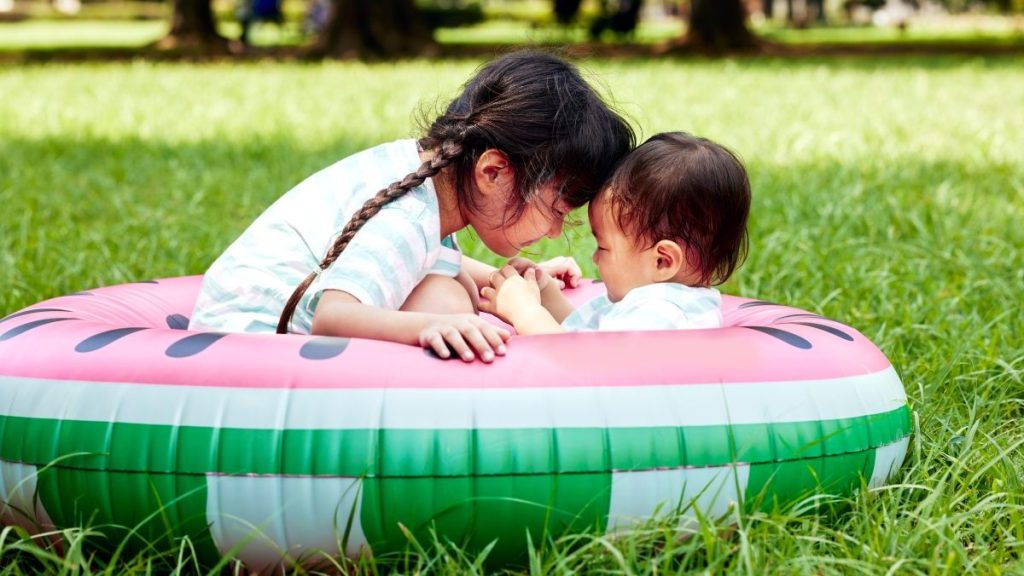Does your eldest daughter often complain about being tired of taking responsibility for their younger siblings or taking care of other household matters? Then, she is most likely experiencing eldest daughter syndrome. This syndrome is very much real and has been there for ages but gained significant attention recently on platforms like TikTok, fostering community and understanding among those affected. So, if you want to know more about eldest daughter syndrome and its impacts, read on to learn all about it.
What is the eldest daughter syndrome and why is everyone talking about it?

Eldest daughter syndrome may not be a formally recognized term, but it’s an experience many older girls and women of the family are familiar with. The term was first introduced in the early 1900s by an Austrian psychotherapist, Alfred Adler.
The concept of this syndrome is linked to birth order theory, which suggests that the child’s position in the family affects their personality and life experiences. In a nutshell, the oldest child of the family will bear more responsibilities and ‘neuroses’ compared to their younger siblings.
Although birth order can influence personality traits, it cannot be considered the only factor for eldest daughter syndrome. Individual differences play a significant role here as well.
Now, thanks to the social media platform, TikTok, many women are voicing their struggles with the syndrome and sharing their experiences, making this term the talk of the town. Many users have highlighted the unique challenges they have faced being the eldest daughter in their family, as compared to their younger siblings.
Overall, the eldest daughters experienced parentification much before the age when one is expected to start acting like an adult. They develop maturity from a young age that can have an impact on their romantic relationships, friendships, and other relationships as an adult. For the unversed, parentification can be described as a phenomenon in which kids are forced to assume roles similar to those of an adult or parent long before they are mentally, physically, or psychologically prepared for such responsibilities. Kids with eldest daughter syndrome generally show few of the following signs:
- They have a strong sense of responsibility
- They tend to sacrifice personal development for education or social opportunities
- They lack personal time due to responsibilities
- They develop an urge to control
- They struggle to set boundaries
- They develop a reluctance to express their needs
- They have difficulty with same-age relationships
- They most likely develop resentment towards family (parents or siblings) with time
- They develop people-pleasing behaviors
Although there are some negative impacts of eldest daughter syndrome, there are some positives as well. For instance, children develop strong leadership and organizational skills from an early age. They are good at multi-tasking and priority management as well. Moreover, they develop good decision-making skills and are more responsible and independent than others.
Impacts of eldest daughter syndrome on the child

While there are several positives, in some cases, the eldest daughter syndrome has a severe impact on children.
They want nothing but perfection
The firstborn usually faces tremendous pressure to meet their parents and family members’ high expectations. In a bid to achieve the desired results, they cannot settle for anything less than perfection. This, at times, leads to chronic stress.
It may contribute to anxiety and depression
The eldest daughter syndrome can lead to anxiety and depression among kids at an early age. Trying to fulfill everyone’s needs, being there for everyone, taking up tasks that may not be age-appropriate, and fulfilling too many roles, can lead to exhaustion and leave the child overwhelmed.
Eldest daughter syndrome can cause relationship issues
Due to the burden of several responsibilities or parentification, the eldest kids can feel a lack of love from their parents compared to their younger siblings. Moreover, since they put the needs of others first, it eventually leads to resentment towards their younger siblings and other family members.
They may face an identity crisis
Since the eldest child dons so many hats and takes up so many responsibilities, they tend to have difficulty finding their own identity that makes them stand out as an individual. Who they are, what are their personal and professional goals, what they want in life, and so on tends to take a back seat for them.
It affects their self-esteem
Family usually expects a lot from the eldest kids which puts a lot of pressure on them. Their high expectation often makes the child think that they are not good enough or have not done a better job. This illusion hampers their self-esteem and confidence as well.
They tend to miss out on things
In between looking after the family and fulfilling their responsibilities from a young age, kids tend to miss out on a lot of things from the beginning. They mature faster and the child within them slowly vanishes. So, as they grow up and look back, they realize they have missed out on their childhood and wish they could live it again. This eventually leads to sadness and depression.

However, no matter how old you are, it’s never too late to make changes in your life to cope with the effects of eldest daughter syndrome. One can break the barrier with the following tips:
- Develop confidence
- Learn to let go
- Learn to prioritize your mental and physical well-being
- Practice self-care
- Ask for help whenever needed
- Delegate responsibilities to your family members (including younger siblings)
- Talk it out with your parents or siblings whenever necessary
- Learn to set boundaries
- Set some personal and professional goals
- Consider therapy if needed
- Most importantly, learn to say no to non-age-appropriate tasks
Not all of these tips may apply to everyone. One needs to pick and choose depending on their family’s overall condition. However, there is always a way to undo the impacts of the eldest daughter syndrome. Being the eldest daughter in the house can be challenging for many. But the key is to know when and where to stop and ask for help.








